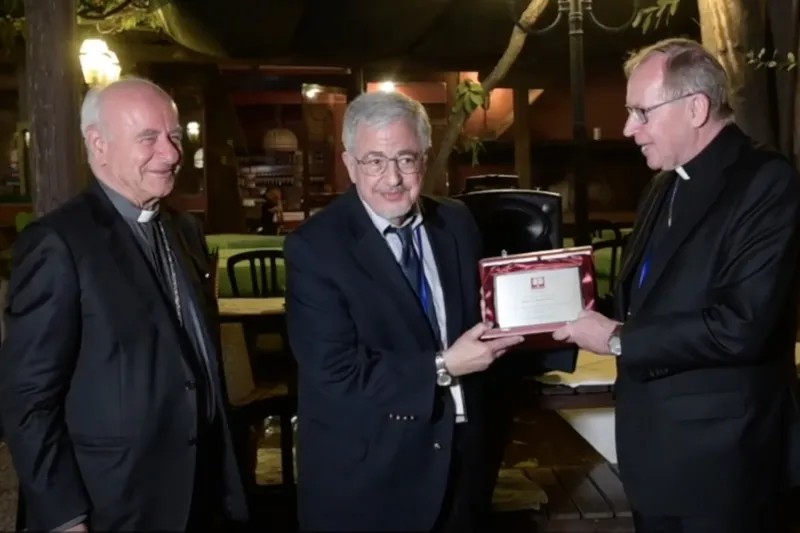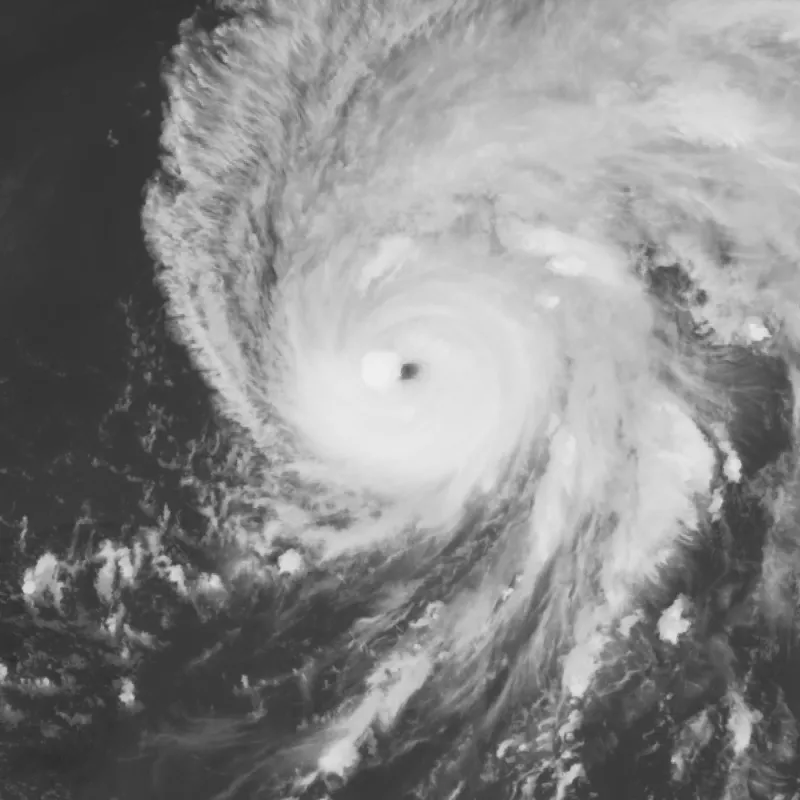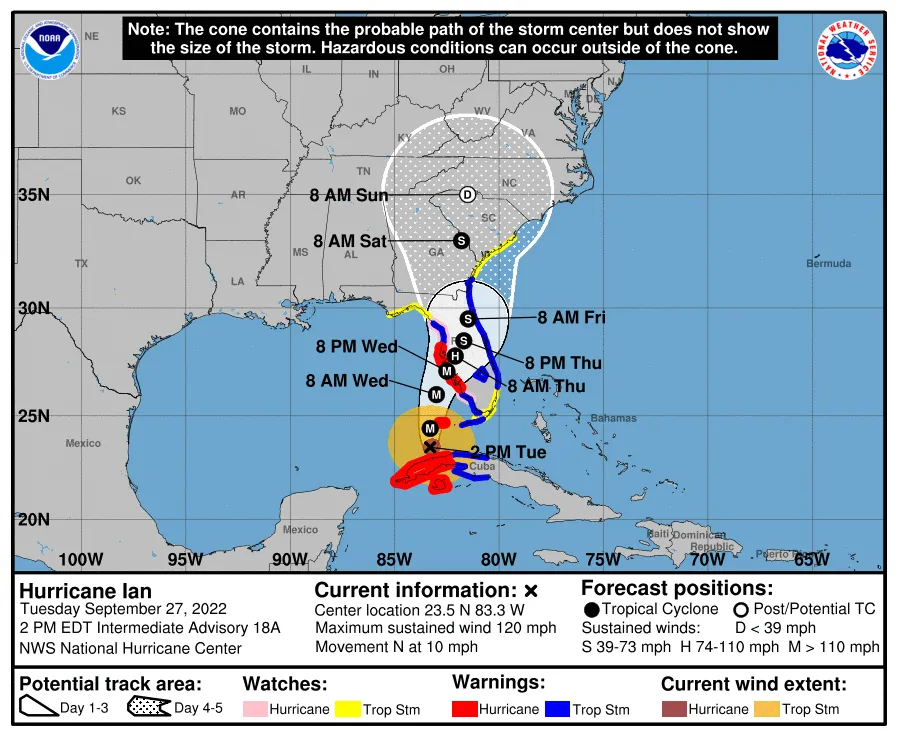 Dale Recinella (C) accepts the Pontifical Academy for Life’s Guardian of Life Award from Archbishop Vincenzo Paglia (L) and Cardinal Wim Eijk (R), Sept. 28, 2021. / PAL screenshot
Dale Recinella (C) accepts the Pontifical Academy for Life’s Guardian of Life Award from Archbishop Vincenzo Paglia (L) and Cardinal Wim Eijk (R), Sept. 28, 2021. / PAL screenshot
Denver Newsroom, Sep 30, 2021 / 13:00 pm (CNA).
Dale Recinella, a Florida lawyer who has ministered to death row inmates for decades, was given an award honoring his service on Tuesday at the Vatican.
The Pontifical Academy for Life bestowed on Recinella its first Guardian of Life Award Sept. 28. In accepting the award, Recinella said he sees the honor as “a profound statement by our Church” about how important the lives of death row inmates are.
“When I have men [on death row] who want to become Catholic, I ask: why? And they say: because that’s the Church that wants me,” Recinella said.
In the mid-’80s, Recinella was working as a high-powered lawyer, first as a partner in a law firm in Miami and then as a supervising attorney at a “very significant law firm” in Tallahassee.
Though Recinella’s family life and career were stellar, by any measure, he began reassing how he had been using his gifts and his skills up to that point. A desire began to stir in both Recinella and his wife; a desire to give back.
So Recinella and his wife Susan got involved in a ministry to the homeless. At that time, one of the biggest problems facing the homeless people Recinella encountered was AIDS, and they ended up taking the state training, through the local AIDS service organization, to get certified to work with people with AIDS.
Eventually, the organizer of the ministry approached Recinella to see if he’d be willing to go even deeper.
“He asked if I would be willing to come to his prison and start seeing men that were terminal with cancer and AIDS,” Recinella recalled, speaking to CNA in May 2020.
“And what I didn’t have the courage to tell him was I’d never been in a prison, I had financed prisons on Wall Street all over the country, huge prisons, but I’d never been in one and had no desire to go in one.”
Recinella’s family helped to convince him that he should take the plunge in the early 1990s.
“It was Susan and the kids quoting Jesus from the Gospel in Matthew 25 that convinced me that if my faith was really guiding my life, that Jesus had said when we visited the least in prison, we visited him, but when we didn’t, we had refused to visit him. And so I figured I’d give it a shot,” he said.
It would be a couple of years before the idea of death row, specifically, really crossed Recinella’s mind, when he and his family ended up moving to the small town of Macclenny, Florida. That town just happened to be the home of the state’s death row prison.
Recinella was shocked at the harsh conditions he encountered when he first set foot in a death row prison.
“The very first thing that struck me, my first experience was, ‘I can’t believe we’re still doing this in the 20th century,’” he recalled, noting that despite the Florida heat, the inmates were not given air conditioning.
Ministering to condemned criminals has not proven easy. Recinella recalls being assigned to a serial killer who had killed young women of a similar age to Recinella’s daughter.
He found the strength to do it through conversations with a trusted priest and through the sacraments, he said.
“I was not ready to handle the spiritual challenges of dealing with the level of human suffering that we’ve experienced in street ministry, AIDS ministry, prison, ministry, and death row ministry,” Recinella said.
“And that’s what we’ve learned is: this is really meant to be done in ‘gangs’ if you will, by ‘gangs of Christians’ doing the gospel. And so we’ve had to make sure that we have a community of accountability that’s calling us to be honest with ourselves, and for me with death row, that is to make sure I’m dealing with the suffering in the way our Church provides for us to do it.”
Once Recinella realized he had a heart for prison ministry, he quickly realized that he could not continue to minister in death row prisons as a practicing lawyer. So, although he kept his law license active, he gave up the practice of law to minister to the death row inmates.
In addition to spending several days a week visiting inmates himself, he has also trained other people to do prison ministry, and has acted as a witness for nearly two dozen executions so far.
Florida, especially the northern part and the panhandle, falls squarely in the Bible belt— which consists mostly of southern states, with Baptist majorities.
Since 1976, nearly 90% of all the executions in the United States have taken place in this region. In fact, Recinella found during his research that just 2% of US counties account for over half of all the executions in the US since 1976. In recent years counties in Texas, Missouri, and Florida have routinely topped the list.
The fact that support for capital punishment remains so strong, especially in parts of the country where it seemed to Recinella that nearly everyone was Christian, troubled him.
So several years ago, Recinella wrote a book identifying 44 requirements of the death penalty when it was the law of the land in Israel— such as a ban on circumstantial evidence, treating all offenders equally, establishing unquestionable guilt, et cetera.
“I identified 44 absolute non-waivable requirements of the biblical death penalty that had to be met before it could even be considered,” Recinella said.
By contrast, he found that the death penalty, in Florida and the US, fulfilled none of those biblical requirements. Last year, Bishop Felipe Estevez of St. Augustine released a pastoral letter calling for an end to the death penalty, quoting extensively from Recinella’s work.
Recinella’s experience over the years has also shown him just how inequitable the death penalty can be— how it disproportionately affects people of minority races, and how those who are poor are less likely to be able to appeal their conviction.
For example, his research found that a prisoner is more than ten times more likely to be executed if it was a black defendant and a white victim, than if it were a white defendant and a black victim. In Florida, nearly 40% of the death row is black, out of a population that is 15% black.
“This is the real death penalty; it’s not the thing that the death penalty supporters think it is,” Recinella commented.
“The real death penalty is a monstrosity, it’s error prone, it’s full of mistakes and human failings, and yes, we get it wrong.”
Recinella says his years of death row ministry have led to many deep friendships, positive relationships with prisoners, and numerous conversions.
“Susan and I, since coming to death row, I think we’ve accumulated about 30 some either godchildren or confirmation godchildren, and those are long-term relationships,” he said.
“The Gospel brings us into long term relationships with the people who are suffering and who the world doesn’t want relationship with.”

[…]







